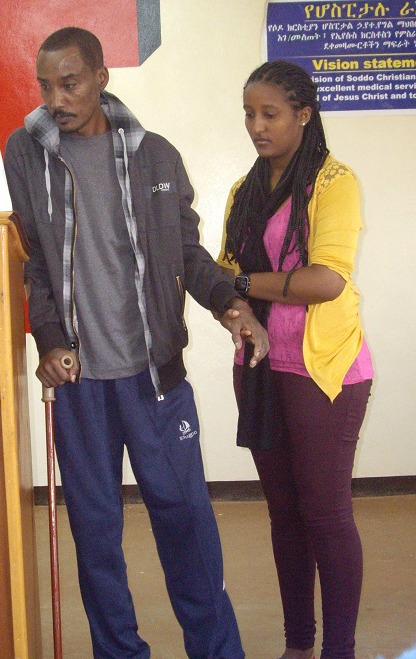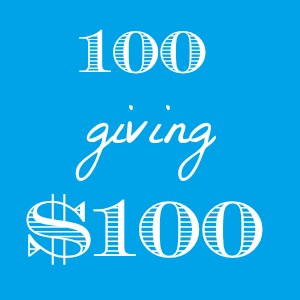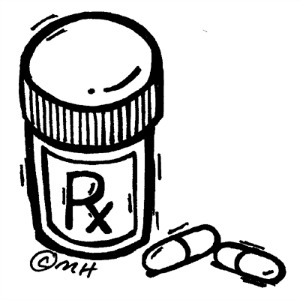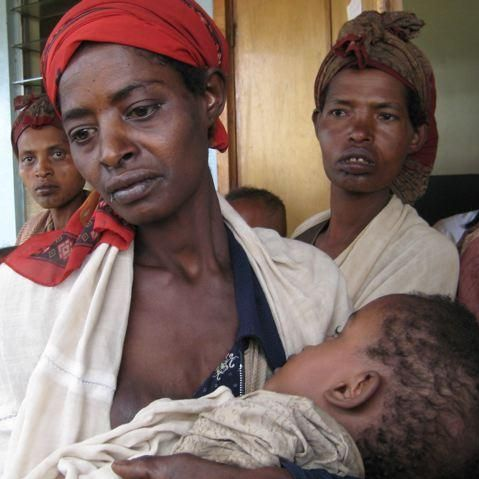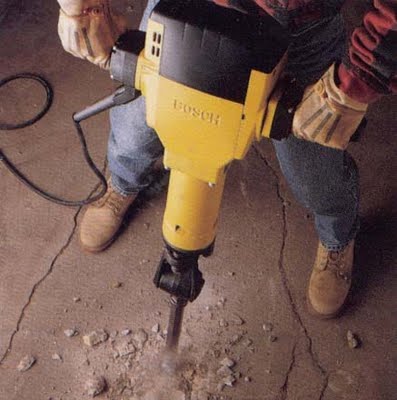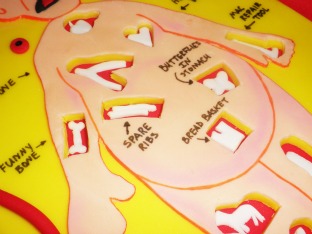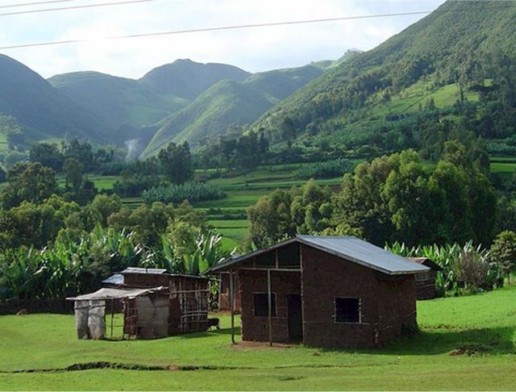All Things to All People
What does it mean to be a Christian hospital? Do you treat everyone? Do you force people to adhere to your religion in order to be treated?
These are questions that we get a lot about Soddo Christian Hospital. They are good questions. At Soddo Christian Hospital, we want to share the Good News in love. We seek to imitate Christ, and so be the fragrance of life to those who are perishing without the Gospel.
One of the things we seek to do at our hospital is "provide excellent medical services". As a Christian institution, we want to follow the Biblical mandate that "whatever we do, to do all to the glory of God". (I Cor. 10:31) So, from the time our patients come in the front door of the hospital, regardless of their creed, color, or sex, we desire that our staff would give them the excellent medical care that they deserve. Of course, we share with our patients about the sacrificial, atoning death of Jesus Christ for their sins. Is their care is predicated on accepting this truth? No! But we do want them to know why we do what we do.
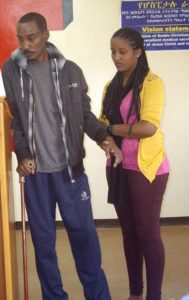
One such incredible demonstration of superb care happened recently in our hospital. This young man had been in a horrible traffic accident. He came to Soddo Christian Hospital clinging to life.
A severe head injury with an open skull fracture.
A crushed pelvis.
Multiple fractured ribs.
For weeks he lay in our intensive care unit, getting supportive care and surgeries when they were indicated. Our nurses tended to his every need. Turning his frail body so he wouldn't get bed sores. Managing his catheters. Keeping him hydrated and nourished.
But complications kept coming. His open skull fracture got infected. His organs tried to shut down many times. But through it all, steady and consistent critical care was given to him by our team of capable nurses and doctors. And from above, the Great Physician was mending his wounds internally.
Slowly, he began to recover. The nurses began to roll him outside for sunshine. I can remember on Easter Sunday, seeing him on the front porch of the Intensive Care Unit, in a wheelchair, with a few of our ICU nurses. They wanted him to see the grace of God in the beams of sunshine on Resurrection Sunday.
Today, months later, he is discharged and walking again with the support of a cane. Of the six months in the hospital, all but the last week were in Intensive Care. He stood before our chapel service today, his wife by his side, with tears in their eyes to say thanks. Indeed, most of us wept as we witnessed a man snatched from the jaws of death. While he did not become an Evangelical believer during his time with us, his care is a testimony to excellent medical service provided by our staff in the name of Christ. And for that we rejoice. We pray that we would become servants to all, as Paul said, "that we might win those who are under the law." (1 Cor 9:20) As Christians, we know that physical healing is amazing, but the most essential healing of all is reconciling a man's soul to God. And so we pray that this patient and others like him would come to that place.
[ois skin="Blog Post Share"]
100 Giving $100
We need your help! In the next 100 days, we want to find 100 donors to give $100 per month for a year!
The care at Soddo Christian Hospital is subsidized for our poorest patients. We have a Benevolent Fund which offsets the cost, so that all patients receive the highest standard of care we can provide, without respect to their ability to pay. Many amazing stories of physical and spiritual healing have taken place within this hospital because of the Benevolent Fund. We post the stories on this blog as often as we can. Read one such story here.
In order to make this subsidy available, we need donors for the Benevolent Fund. We have set out to recruit 100 donors who would be willing to give $100 per month for the next year. We can set up an ongoing, recurring donation using the link on our Donate page.
And you can give with confidence, because 96% of your gift will go directly to patient care! Please sign up today, and tell a friend. Our goal is to find 100 such donors in the next 100 days. Won't you help us?
You Can Put St.ock In Us!
Would you like to gift stock to Soddo Christian Hospital? We can accept it!
St.ock gifts are a great way to donate funds to patient care. The Foundation receives the full current value of the stock, and the donor avoids capital gains taxes. How does it work?
Well, if the securities have been held for more than one year and are donated directly to the Foundation, the donor is able to deduct the full fair market value of the securities. And capital gains taxes are avoided. On the other hand, if the securities are sold first and then the proceeds are given, the donor still has to pay capital gain taxes to the Internal Revenue Service. A little planning in this area can help you take full advantage of the tax benefits allowed by the government.
Got some stock to donate? Contact us at info@soddo.org for more information on how to make the donation?
What? You don't have Idraparinux?
 What kinds of medications are available at an African mission hospital, and from whom do you procure them? These are questions that we get asked a lot. Here are two lists. Five things we have, and five things we don't! Most of our medications are imported from Europe and Asia. A few are made locally in Ethiopia. One thing we can't use is expired meds - it's prohibited by law - so even though we'd like to take these off your hands, please don't send them to us!
What kinds of medications are available at an African mission hospital, and from whom do you procure them? These are questions that we get asked a lot. Here are two lists. Five things we have, and five things we don't! Most of our medications are imported from Europe and Asia. A few are made locally in Ethiopia. One thing we can't use is expired meds - it's prohibited by law - so even though we'd like to take these off your hands, please don't send them to us!
Five medications we have:
- Most antibiotics! We have penicillins, 3rd generation cephalosporins, macrolides, aminoglycosides, fluoroquinolones. We even have vancomycin most of the time.
- Pain meds: For mild pain, we carry ibuprofen and tylenol. We also have stronger IV pain meds for our surgical patients, and fractures.
- Blood pressure and diabetes medications. We have oral calcium channel blockers, ACE inhibitors, diuretics, and some beta-blockers. We use metformin and glibencamide for diabetes control, and we also have insulin.
- Albuterol multi-dose inhalers. These are key for our chronic asthma patients, and COPD patients. We don't have nebulized albuterol (which we'd like to have), but we can substitute these MDIs, and they work quite well.
- GI problems? We've got proton pump inhibitors (Prilosec for example), and we even have Zofran for nausea and vomiting.
Five medications we don't have. We are hoping that in time, our access to some of these meds will improve:
- Fancy antibiotics. Anti-pseudomonal penicillins like Timentin and Zosyn. These are great for severe infections. Also, we still lack a good IV first generation cephalosporin.
- Artesunate. This is the WHO-recommended standard for IV treatment of severe malaria. It is difficult to find however, and we rarely have it. Instead, we use Quinine which is an acceptable but less desirable medication.
- Newer blood pressure and heart failure medications like Carvedilol. Also, newer diabetes meds like long-acting insulins.
- Low-molecular weight heparin. Ever heard of Lovenox? It makes treating deep venous thrombosis and pulmonary embolism so much easier. But alas, it is rarely available on the African market.
- IV calcium and sodium bicarbonate - rarely we will have these. It does create problems managing a hyperkalemic patient or profoundly hypocalcemic patient. We have other therapies that we can use though.
Others you are wondering about? Ask in the comments and we'll respond!
6 Ways We Are Reaching the Poorest of the Poor
 Being a mission hospital means taking care of the poor. We are commanded to do this by Jesus, and it is something we desire to do. If we offer free care, we will be inundated with patients. How could we possibly treat them all? If we charge for the care, we may overlook many who are very poor. What can we do?
Being a mission hospital means taking care of the poor. We are commanded to do this by Jesus, and it is something we desire to do. If we offer free care, we will be inundated with patients. How could we possibly treat them all? If we charge for the care, we may overlook many who are very poor. What can we do?
- First, everyone is expected to pay something. Even if it is only a few cents. It is simply not sustainable for us to provide free care. Indeed, most Africans have a social safety net made up of family, friends, church members, etc. who can contribute to their medical expenses. However, we recognize that this will not be enough for some patients. For them, we have a Benevolent Fund that can cover their costs.
- We have a committee of nationals who evaluate patients and their eligibility for the Benevolent Fund. In a country like Ethiopia, where many in the population live on less than $1 per day, it can be difficult to sort out who are the poorest among the poor. Particularly for Westerners working here. Relative to our background, everyone seems poor, and we would likely put everyone on the Benevolent Fund. That is why it is so crucial to have nationals evaluate these situations on a case-by-case basis.
- We lower costs as much as possible by using expatriate specialist staff who are funded separately through their respective mission agencies. We still have to pay for all the operating costs of the hospital, the nursing staff, our national doctors, and supplies. But we offset these costs with donations and some volunteer staff. Much of our equipment is donated which lowers capital expenses for the hospital and this is passed on to patients.
- The rural poor in Africa have less than a 10% chance of seeing a doctor in their lifetime. The medical services simply do not exist for the vast numbers of people. (Ethiopia alone has close to 100 million inhabitants.) Ultimately, it comes down to training. We are training surgeons, physicians, medical students, and nurses. If we are truly going to expand our reach to the poorest of the poor, we must increase capacity in the face of such great need.
- We are going out into the community with Community Health Evangelism, Helicopter Outreaches to the T'ara people, and rural prenatal clinics. These initiatives are taking the Gospel and quality medical care to rural poor who would otherwise never see a a doctor.
- Your donations make a difference. As we have written on here before, 96% of the money you give on this site, goes directly to Ethiopia. A significant portion of that goes to the Benevolent Fund. Which in turn pays for care for the poorest of the poor.
Click here to give today, and know that you are giving to an organization that is doing all it can to reach "the least of these."
12 Things for Non-Doctors to do at SCH

Okay, so we're not gonna ask you to jackhammer (unless you really want to). But one question we do get a lot is: "I'm not a doctor. Could I still be of any use at the hospital?" So here are 12 things that you could do at the hospital if you are not, say, medically inclined...
1. Plumbers & electricians: We need all sorts of skilled labor done around the hospital. We have septic systems, generators, and a myriad of other equipment that need tending to.
2. Leadership development: Are you a manager or have experience coaching leaders? Come and help us train our senior staff at the hospital.
3. Teachers: You can teach English at our hospital language school. We also have about 15 missionary kids (MK's) here in addition to our residents' kids, and they would love a Vacation Bible School or some type of sports camp. That means you too, coaches.
4. Organizers: Are you organized? We have loads of equipment and materials that need to be inventoried/cataloged. Come and get your type-A personality fix here!
5. Office computer skills: Are you good with Excel? Want to host a workshop for our financial people? What about Word or other clerical software? We have a large administrative staff that you could train.
6. Any IT/Networking People out there? We recently began a network at the hospital, and are running a server and handful of workstations. What's next? Come help us figure it out, and figure out ways to run our network better.
7. Prayer partners. Would you want to pray with some of our patients? Maybe hold a child's hand before they go into surgery?
8. Babysitters: Our missionaries need a break every once and a while. Perhaps you could watch their kids, so they can go out for dinner.
9. Artists: Want to come and paint some cool murals on our hospital walls? Or how about do some art with the patients or the MK's? Give us your ideas, and let's do it.
10. Chefs/restauranteurs/amateur cooks: We cook everything here from scratch, so it's a lot of work! How about you come and help teach us and our staff how to prepare simple meals from scratch from our locally available ingredients? Or just cook for us, and give us a break with your delicious home-cooked meals!
11. Pastors/church leaders - Come and work with our chaplains and train/work alongside them!
12. Anything you want to do! - This place is ground-up work, and there are all kinds of tasks to do. How has God gifted you? Just ask us, and let's figure out a way to use those gifts here!
What's Your Specialty?
At Soddo Christian Hospital, we offer all types of general and specialized care. Here's a sampling of specialized services that we offer at Soddo Christian Hospital:
- We have an outpatient department with an emergency room and non-urgent primary care. We see pediatric and adult patients. Our general medical staff includes a US-trained pediatrician, emergency physician, family nurse practitioner, and tropical disease expert. We have a European-trained geriatrician, as well as a national internal medicine specialist who sees clinic patients and inpatients.
- We have two, that's right TWO, US-trained general and trauma surgeons. They serve as the primary faculty advisors for the general surgery residency program at the hospital. (Yes, we are a teaching hospital affiliated with the Pan-African Academy of Christian Surgeons). This team performs other surgeries as well including a fair amount of urologic procedures.
- Orthopedic Surgery - we have a US-trained orthopedic surgeon and perform a full gamut of bone and joint surgeries with pediatric and adult patients, including arthroscopic surgery!
- Obstetrics & Gynecology - our US-trained obstetrician and team of midwives perform deliveries and C-sections as well as expert gynecology services.
- Subspecialties are available on an occasional basis. Through World Medical Mission, we have plastic surgeons, ENT (ear, nose & throat), urologists, and neurosurgeons come and work in Soddo on a frequent basis.
As you can see, we are well staffed to take care of all types of emergent and non-emergent conditions!
Where is Soddo Anyway?
We get asked this question a lot, so we thought we'd show you. Here is a map of Ethiopia:
As you can see, the capital city Addis Ababa is located smack in the middle of the country. If you visit Soddo, this is where you will fly into, usually from Europe, or maybe Washington, D.C. From the southwest edge of Addis, you head south on the Jimma Road, and right outside of Addis, turn left down the highway that takes you to Soddo. Here's the route:
From Addis, it's about a 330 km, or about 205 miles to Soddo. You pass through 2 major towns, Butajira at around 100km (you're about one-third of the way there) and Hosanna at around 200km (now you're on the home stretch). The journey takes about 5 hours. Often folks will stop for lunch or coffee - we recommend the Rediet Hotel in Butajira. Along the way, expect to see some beautiful rolling countryside, farmland, and Ethiopia chika bets, or mud houses.
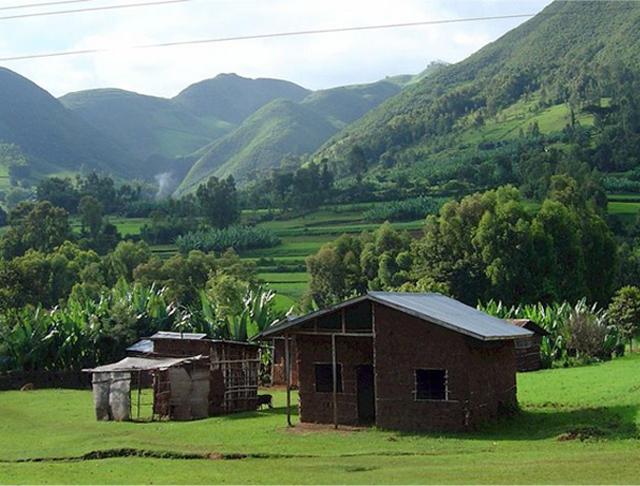
The big towns, like Hosanna and Butajira, are full of retail stores, restaurants, and hotels. When in the towns you will see 3-wheeled motorized tuk-tuks that are referred to as a "Bajaj" after the Indian company that makes them. Here's a couple photos:


And, of course, expect to see plenty of donkeys, donkey-carts, and pedestrians occupying the road as you travel. In fact, many more people on the road in Ethiopia are on foot than in cars!

96% means 96 cents on every dollar donated goes to the Hospital in Ethiopia
Not many charities can claim this, but we promise you 96% of the money you donate will go directly to Soddo Christian Hospital in Ethiopia and our patients. How do we do that? Here are five ways:
- All of our medical missionaries are supported through partner mission sending agencies. That means that they raise their own support, and the hospital does not pay them. So, none of your donated dollars will go to pay salaries of our expatriate staff.
- Our US and Europe-based advocates are all volunteers. All of our board members, and the people who do the work on the hospital from outside Ethiopia are not paid. You can rest assured that your donation is going where it's needed - not to pay our admins.
- Of course we have costs as a non-profit. Things that are unavoidable like postage for our newsletters or wire transfer fees to get the money to Ethiopia.
- The hospital charges patients a very small fee. (Except for the very poor - for them, see point #5). These patient fees go to pay for the electric bill and a lot of the day-to-day operations of the hospital. So you aren't contributing to the utilities. So what are you giving to? Well, that leads us to our last point...
- The donations we receive go directly to pay for care for the poorest of the poor, and to help us build new wards, patient facilities, and equipment that we need to care for the patients. We have a Benevolent Fund which pays for our poorest patients, and a significant portion of your donations go to that. Another portion goes to provide equipment that the hospital needs like an ambulance, or a piece of lab equipment. And lastly, some of the money goes to build more beds and more space for more patients.
Doesn't it feel good to know that your money is going to the place where it's most needed? We think so - that's why we do it this way. You can give today and help us keep providing excellent care and proclaiming the Gospel in Ethiopia!
Does a mission hospital treat everyone?
This is a question that we get asked a lot. So we wanted to address it. And the answer is... yes!
Our hospital is a mission hospital. You can read all about our mission and values here. But suffice it to say, that we exist not just to treat people with excellent medical care, but to proclaim the Gospel of Jesus Christ and make disciples.
But do we treat anyone who comes in the door, no matter what their faith or background? Of course we do! We are proud to serve the people of this part of Ethiopia. Fortunately, as our reputation has grown, now we are also seeing patients referred to us from all over the country. And these patients come from all types of backgrounds. Some are Ethiopian Orthodox, some are Muslim, some are animistic, and some are Protestant. We see and treat them all.
In the hospital, our staff will offer to pray with patients regardless of their background. We believe that a person's health should be attended to physically and spiritually. We find that our patients really respond to the fact that we care about them in this wholistic manner.
Often, if a patient is open to hearing about it, we will share with them the life-giving message of the Gospel. We don't force it. But we do give them the opportunity to hear. We play the Jesus Film in the hospital. We will often provide a Bible in Amharic. By God's grace, we have seen over 500 patients profess faith in Christ since the hospital opened its doors. But even for those that kindly decline, we aim to provide excellent care just the same.

